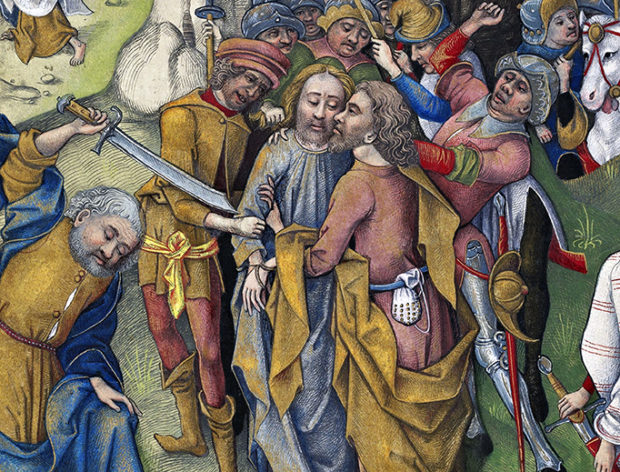What Filipino bishops can learn from the Pennsylvania abuse report
The Catholic Church, the Church I dearly love, once again found herself in an awfully big and serious trouble after the release of a grand jury report in Pennsylvania.
The 900-page report was stomach-turning chronicle of evil inflicted upon a thousand innocent people by some 300 priests. Not unlike a tsunami wiping out the Church’s credibility, “the Holy Father understands well how much these crimes can shake the faith and the spirit of believers”(‘Shame and sorrow’ – Holy See responds to Pennsylvania report, CBCP News, August 17, 2018).
Truth hurts, really hurts. In 2010, Pope Benedict XVI acknowledged that “the greatest persecution of the Church doesn’t come from enemies outside, but is born in sin within the Church.” And Old Nick’s characteristic laughter can be heard in all corners of Hell (Catholic-church).
Transparency, accountability
Appalled by the depraved signs of the times, Pope Francis demanded accountability for both perpetrators and bishops who covered up the crimes.

srael von Meckenem, “The Kiss of Judas Iscariot,” 15th century
The crisis in the Church is made more complicated, as Pope Benedict XVI has put it, by the concealment done by some bishops, maybe out of self-preservation, or “a misplaced concern for the reputation of the Church and the avoidance of scandal” (Letter to the Catholics of Ireland, March 19, 2010).
Retired Archbishop Oscar Cruz, who heads the National Tribunal of Appeals, says that “gone are the days when you can just close your eyes and plug your ears, as if nothing is happening” (Sexual abuse and the Catholic Church in the Philippines, February 17, 2017).
“The Church must learn hard lessons from its past” (Holy See, August 17, 2018) and the first lesson learned by bishops is this: NO MORE COVER-UPS. The time to sweep all dirt under the rug is over. To man up, open a hotline, face the truth, admit errors, beg for pardon, and be committed to resolve the moral problems: These are the brave acts that pave the only way towards genuine reforms.
A wolf in shepherd’s clothing
After ordination, the frail created being has become an alter Christus, oh yes, God’s ambassador plenipotentiary. Alas, the Sacrament of Holy Orders cannot disconnect the brutish tendencies from the ordained minister. The wretched condition is empowered to do supernatural functions as he personally struggles in a sort of spiritual combat within himself.
On many occasions, shattered vows and violations of celibacy are due to human weakness. And I ponder the stern warning once uttered by St. Ambrose of Milan (333-397 A.D.): “He who has preserved chastity is an angel and he who has lost it is a devil.”
But the sexual abuse of the children is entirely different. It is “criminal and morally reprehensible” and the predator-priest is not just weak but demonic. Pope Francis once called him a wolf in shepherd’s clothing (Morning meditation, 15 May 2013).
“Statement of episcopal commitment”
Every cloud has a silver lining. Most allegations mentioned in the Pennsylvania report happened BEFORE the 2002 U.S. bishops’ “Charter for the Protection of Children and Young People” was put into place.
However, while the Holy See noted there are almost no cases AFTER 2002 due to a well-placed mechanism that protects the innocents in the United States, sexual abuse allegations against the clergy in the Philippines are on the rise. This is true, says Fr. Jaime Achacoso of the PH Episcopal Commission of Canon Law, particularly in those areas “where the hierarchy is not so well-organized.”
Accordingly, our Filipino bishops may choose to provide “stronger protections against predators in the Church” by updating the 2003 Pastoral Guidelines on Sexual Abuses and Misconduct by the Clergy.
A revised guideline is needed to make it clear what specific avenue (hotline) victims can use in reporting sexual misconduct by the clergy, as well as underline the value of the training and involvement of more laypeople and professionals in solving problems when they come and in assisting abuse survivors, among others.
Insofar as our Filipino bishops are concerned, to face off this moral catastrophe requires not only spiritual conversion but also practical changes, principally by putting a proactive reporting system in place and a more effective resolution of future complaints, in order to avoid the repeat of the Legarejos case in other PH dioceses.
Scandals cannot reduce the Church I dearly love to ashes. I believe the Catholic Church can withstand all moral crises, trials, and tribulations, and will continue to be a portal of God’s amazing grace in human history.
U.S. Catholics, although “sickened” by sex abuse report, stand by their Faith. Me too.
Jose Mario Bautista Maximiano is the author of The Church Can Handle the Truth (Claretian, 2017). Comments to [email protected]







